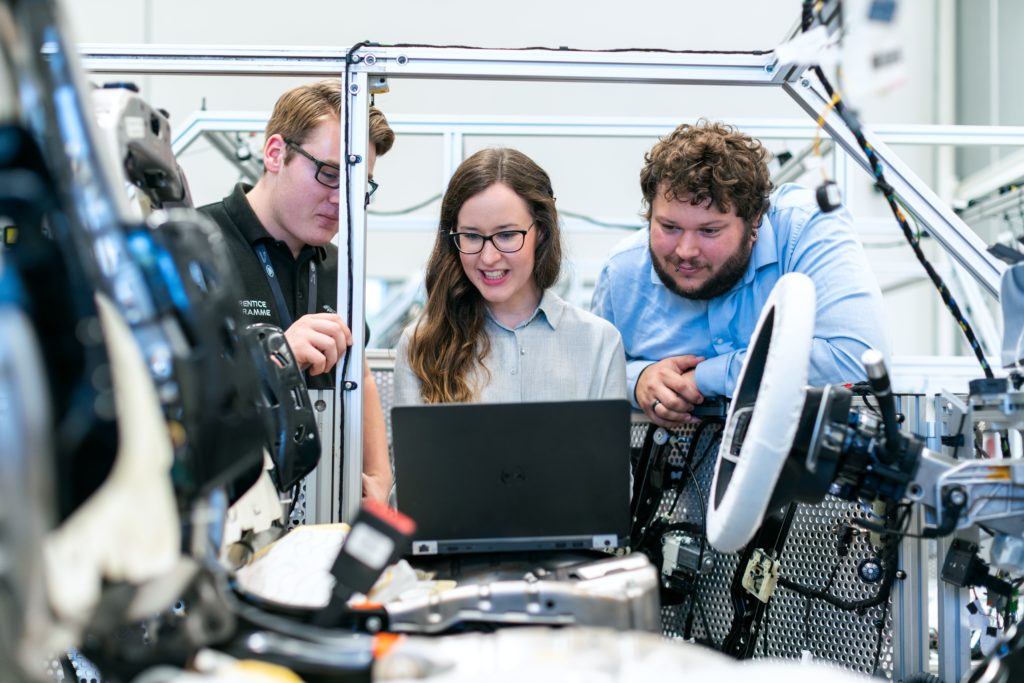Knowledge management
Top 5 benefits of fostering knowledge sharing across your entire company
- By elium
23 Sep

Effectively managing knowledge has been on the agenda of business professionals for several decades now, as we transitioned from a resources-driven economy to a knowledge-driven one. After that, knowledge management started to attract more and more the attention of researchers, who summarised essential concepts in this field.
One such concept is knowledge sharing, which happens when employees exchange around learnings, failures and successes. For knowledge sharing to occur in an organisation, everyone needs to play its parts:
- Employees have to be willing to set time aside and get outside their comfort zone.
- Managers and team leaders have to back up these initiatives through their attitude and practices put in place.
- Senior management has to offer the means for knowledge sharing to happen seamlessly by backing up a culture of transparency and collaboration and implementing the right processes and technologies.
While knowledge sharing does indeed require the commitment of everyone around the table, the outcomes can be incredible. In this article, we have summarised 5 of the most important ones.
So what are the most important benefits of empowering knowledge sharing across you entire company?

1. Happier employees, with more time on their hands for work that makes a difference
Despite general belief, knowledge sharing is not a time-waster but a time giver. As highlighted in a 2012 McKinsey study, employees spend 19% of their week searching for information they need to perform.
Having in place a knowledge-sharing platform solves this:
✅ It helps organisations make critical knowledge available and actionable at all times.
✅ It offers leadership a trusted place to communicate important news and bring clarity.
✅ It removes a lot of unnecessary questions from employees minds. Where can I find document X? Who is the best person to discuss topic Y? What have we done in the past with project Z?
✅ Removes the need for unnecessary phone calls, shoulder tapping and unproductive interruptions.
The best knowledge platforms have a robust search system (even inside attached files) and a way to mark knowledge (as expired or up to date). These are vital features that help employees spend less time searching for the information they need. And instead, focus on creating meaningful work.
2. More knowledgeable employees, with instant access to essential insights and collaborative knowledge sharing
While training might be at the top of your list when it comes to developing your team, famous L&D models claim something else. The 70:20:10 framework insists that formal training is responsible for only 10% of Learning and Development outcomes. Experiential on the job learning (70%) and social learning (20%) have proved to be far more effective. These methods provide employees with flexibility, learning synergies, engagement and more effective problem-solving.
Having in place a knowledge-sharing platform can ease these two elements of the model:
- With instant access to essential knowledge, on the job learning (the 70% part of the model) is facilitated.
- Social collaboration features and spaces for experts to voice their opinions improve social learning (the 20% of the model). Such an approach can foster collaborative brainstorming and peer communities. It can offer employees a place to exchange around work topics and identify solutions to their challenges.
3. Laying the grounds for becoming an effective learning organisation
Learning organisations are those that can learn from past mistakes to enable better future results. While there are many ways to stimulate such a learning culture, one essential practice is to stop and reflect at the end of each project or initiative. One great example here is that of the U.S. Army who put the After Action Reviews (AARs) in place. This became a regular practice for evaluating their performance and finding ways for improvement. Such a structured reflection helps organisations to be consistent in improving themselves. It allows teams to make immediate improvements in their operations and processes.
A modern knowledge-sharing platform digitalises this activity. With pre-defined templates, teams can share their learnings with everyone instantly. And shared knowledge is then readily available across time and devices.
Of course, in addition to implementing a knowledge-sharing platform, being a learning organisation requires a clear commitment and processes. But technology is definitely an enabler and one that can make a difference immediately after implementation.

4. Visibly increase the propensity and ability to innovate
5. Steer collaboration, co-creation and make collective intelligence a reality
And these are just a few of the benefits of implementing a knowledge sharing platform across your organisation.
Want to learn more and see how Elium can help in this journey? Sign up for a free 14-day trial today or book a demo to talk to someone in our team.







